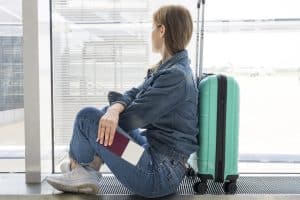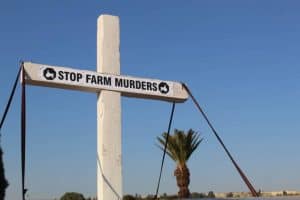To travel abroad does not always involve boarding a big plane and undertaking a journey for hours. Sometimes it can be as simple as getting into your own car and taking on the long road – especially if you are visiting one of South Africa’s six neighbouring countries. Whether you travel to the tropical beaches of Mozambique or the Namibian desert, our neighbouring countries offer amazing sights that are worth a visit – provided that you know what it entails.
The following documents are required for most of the countries on the list if travellers want to travel across the border in a car:
- A Valid South Africa driver’s licence.
- Third-party insurance from your insurer.
- A letter from your bank with the dates of your journey and that they are aware that the car will be crossing the border.
- A certified copy of the car’s registration documents.
- A letter from the South African Police giving you permission to take the car across the border in the case where the car is rented or the car is not registered in your name.
- Apart from this documentation South African cars must have a ZA sticker to indicate that it is a foreign car.
Botswana
It is relatively easy to travel to Botswana and the trip from Johannesburg can take between four and seven hours depending on which one of the 17 border posts you are using. Even though Botswana is quite close to South Africa, travellers are advised to rather not travel during the night. Animals, mainly donkeys, cattle and goats, walk freely next to and sometimes on the national roads and can be a safety risk.
For travellers to the north of Botswana, malaria medication is recommended especially visitors to the well-known Chobe National Park. Tap water is generally considered safe to consume. Travellers are also advised to be cautious of other water sources seeing that bilharzia can be found in the country.
Mozambique
South Africans love to visit the white beaches of Mozambique, especially for Easter weekend and the December holidays. Apart from the above documentation, Mozambique also requires that all cars have two triangles in case of emergency.
In certain parts of Mozambique, particularly in the more remote areas, food and water are not always of high quality. One of the common problems is food and water that are contaminated by tifus. Travellers are usually advised to rater drink bottled water to prevent any risk.
If you want to make use of public transport there are various options to choose from. All public transport is known under the collective term chapa. It refers to any car, excluding buses and trucks, that travels between towns and can be found almost anywhere, similar to the taxi services in South Africa. Buses are also a popular travel option in Mozambique and travel between most large towns. Like chapas the buses are not luxurious and travellers must prepare themselves for that.
For travellers that want to make use of their own transport, there is of course the local police to take into consideration. Travellers must according to law have their identification documents with them at all times and must be prepared to be pulled off for regular inspections.
Namibia
Many South Africans that love the wild African beauty yearn for the Namibian desert and the beautiful scenery of Etosha. Since Namibia is such a large country, it is important for travellers to check that they have enough fuel. They must ensure that the fuel tank is constantly full because fuel stations are not widely available like in South Africa and can sometimes be far apart.
The South African rand is generally accepted in Namibia and is equal in value to the Namibian dollar. It is therefore not necessary to exchange money when travelling to Namibia.
Swaziland
Swaziland is one of our smaller neighbouring countries and covers only 17 364 square kilometres. Other than travelling by car to Swaziland from South Africa, it is now possible to fly with SA Airlink as they undertake daily flights to King Mswati III International Airport. Just as in Namibia the Swazi currency, the Swazi lilangeni, has the same value as the South African rand and it is not necessary to exchange money.
Zimbabwe
Due to the recent unrest in the area, Zimbabwe is visited less than the other neighbouring countries. Nevertheless, the country still remains one of the most beautiful in southern Africa and offers wonders like the Victoria Falls. For years Zimbabwe did not use their own currency, but since 2019 the Zimbabwean Minister of Finance announced that foreign currencies will not be used anymore and only the Zim. dollar will be used in future. Travellers must therefore rather exchange their money or use credit cards when travelling in Zimbabwe.
Like South Africa, Zimbabwe has various cultures and there are 16 official languages but travellers that speak English will get by easily. One thing that should be avoided when travelling to Zimbabwe is wearing a camouflage uniform, because it is the same as their military uniform. You can be given a fine or be imprisoned if you are found guilty of this offence.
Lesotho
Lesotho is especially known for its tourist attractions such as Afriski that is a particularly enjoyable getaway for South Africans during the winter months. Just like in the other neighbouring countries it is not necessary to have a visa to visit the country if you are staying for less than 3 weeks. The value of the local currency, the Lesotho loti, is equal in value to the rand and the rand is generally accepted in this country. Visitors to Lesotho need not be worried about diseases such as malaria, as it is not found in this area. One risk in Lesotho is the thin air in the higher areas and travellers sometimes suffer from altitude sickness until their bodies adjust.
























